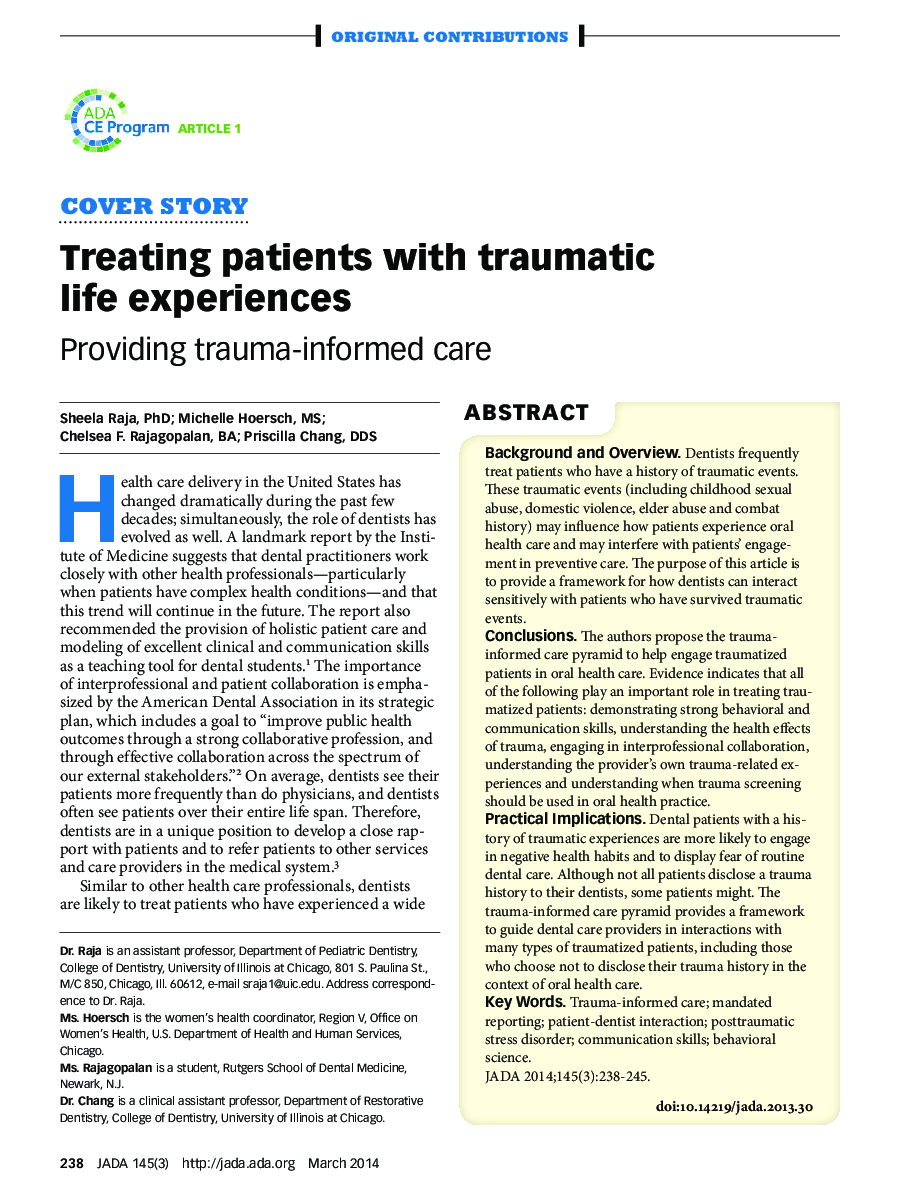| Article ID | Journal | Published Year | Pages | File Type |
|---|---|---|---|---|
| 3137239 | The Journal of the American Dental Association | 2014 | 8 Pages |
ABSTRACTBackground and OverviewDentists frequently treat patients who have a history of traumatic events. These traumatic events (including childhood sexual abuse, domestic violence, elder abuse and combat history) may influence how patients experience oral health care and may interfere with patients’ engagement in preventive care. The purpose of this article is to provide a framework for how dentists can interact sensitively with patients who have survived traumatic events.ConclusionsThe authors propose the trauma-informed care pyramid to help engage traumatized patients in oral health care. Evidence indicates that all of the following play an important role in treating traumatized patients: demonstrating strong behavioral and communication skills, understanding the health effects of trauma, engaging in interprofessional collaboration, understanding the provider's own trauma-related experiences and understanding when trauma screening should be used in oral health practice.Practical ImplicationsDental patients with a history of traumatic experiences are more likely to engage in negative health habits and to display fear of routine dental care. Although not all patients disclose a trauma history to their dentists, some patients might. The trauma-informed care pyramid provides a framework to guide dental care providers in interactions with many types of traumatized patients, including those who choose not to disclose their trauma history in the context of oral health care.
